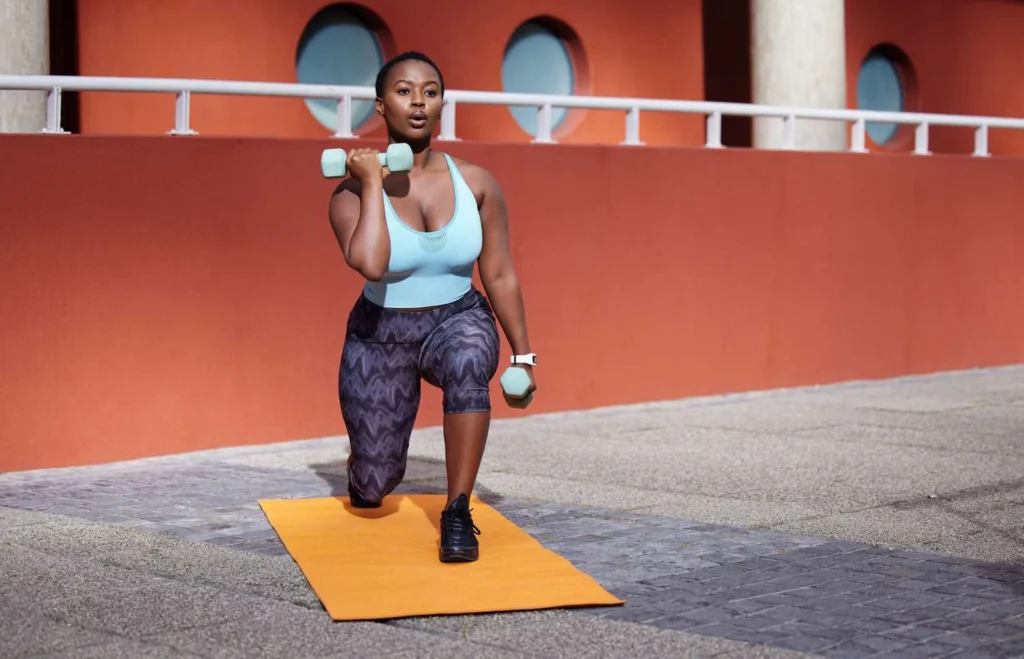Strength training offers transformative benefits for women, positively impacting both physical and mental well-being. Whether you’re in your 20s or 70s, incorporating resistance exercises into your routine is essential to staying fit, strong, and healthy. Let’s explore the key benefits of strength training for women across different life stages and how it promotes long-term wellness.
1. Improves Muscle Strength and Prevents Age-Related Muscle Loss
As women age, they experience a natural decline in muscle mass, known as sarcopenia. Strength training combats this by maintaining muscle strength and tone, enabling women to stay active and independent even in later years. Studies show that women in their 60s and beyond can see a 25% to 100% improvement in strength with regular resistance exercises.
2. Promotes Bone Health and Reduces Osteoporosis Risk
Weight-bearing exercises help improve bone density by placing stress on the bones, which encourages growth and reduces the risk of fractures and osteoporosis—particularly significant for postmenopausal women. Resistance training follows principles like Wolff’s Law, which explains how bones adapt to the forces placed upon them, making it crucial to maintain bone health as women age.
3. Enhances Metabolism and Aids in Weight Management
Strength training increases lean muscle mass, which, in turn, boosts metabolic rate. This enhanced metabolism helps women burn more calories at rest, supporting weight management. Resistance exercises are especially beneficial for women experiencing hormonal changes in their 40s and 50s, when shifts in estrogen and progesterone levels may contribute to weight gain.
4. Improves Heart Health and Reduces Chronic Disease Risk
Cardiovascular disease remains a leading cause of death among women. Strength training can lower blood pressure, improve cholesterol levels, and enhance insulin sensitivity, reducing the risk of heart disease and diabetes. Additionally, resistance exercises help manage inflammatory responses, contributing to improved heart health over time.
5. Supports Mental Health and Reduces Stress
Lifting weights is not just about physical fitness—it offers significant mental health benefits too. Strength training reduces symptoms of anxiety and depression by releasing endorphins, improving mood, and lowering cortisol levels. This is particularly important for women in their 40s and 50s who may experience stress from personal and professional responsibilities.
6. Prevents Injuries and Enhances Balance
By strengthening muscles, tendons, and ligaments, resistance training improves stability and reduces the risk of falls, a common concern for older adults. Enhanced core strength, better posture, and improved coordination are additional benefits that help women stay mobile and injury-free.
7. Promotes Healthy Aging and Independence
Engaging in strength training throughout life helps women maintain functional independence, making it easier to perform everyday tasks. For older women, it reduces the risk of conditions such as arthritis and osteoarthritis, improving quality of life.
8. Boosts Pelvic Health and Supports Postpartum Recovery
Strengthening the pelvic floor muscles can alleviate issues like urinary incontinence and improve sexual health. Additionally, strength training can aid in postpartum recovery, helping women manage conditions like diastasis recti (abdominal separation) by targeting specific core muscles with professional guidance.
Getting Started with Strength Training
Experts recommend strength training at least two days a week for 15 to 30 minutes per session. Beginners can start with bodyweight exercises such as squats, push-ups, or yoga, progressing to resistance bands or free weights as they build confidence. Women in their 40s and beyond may benefit from heavier lifts, emphasizing high-intensity work tailored to their fitness levels.
Overcoming Common Misconceptions
Despite the overwhelming benefits, some women fear that strength training will make them bulky. However, women’s lower testosterone levels make significant muscle gains unlikely. Instead, the focus should be on building functional strength, endurance, and overall well-being.
Conclusion
Strength training is an essential part of any fitness routine, offering women of all ages numerous physical and mental health benefits. Whether your goal is to improve posture, manage chronic conditions, boost metabolism, or simply feel stronger and more confident, incorporating resistance exercises into your lifestyle is a step in the right direction. Remember, it’s never too late to start—so grab those weights and begin your journey to a healthier you!
